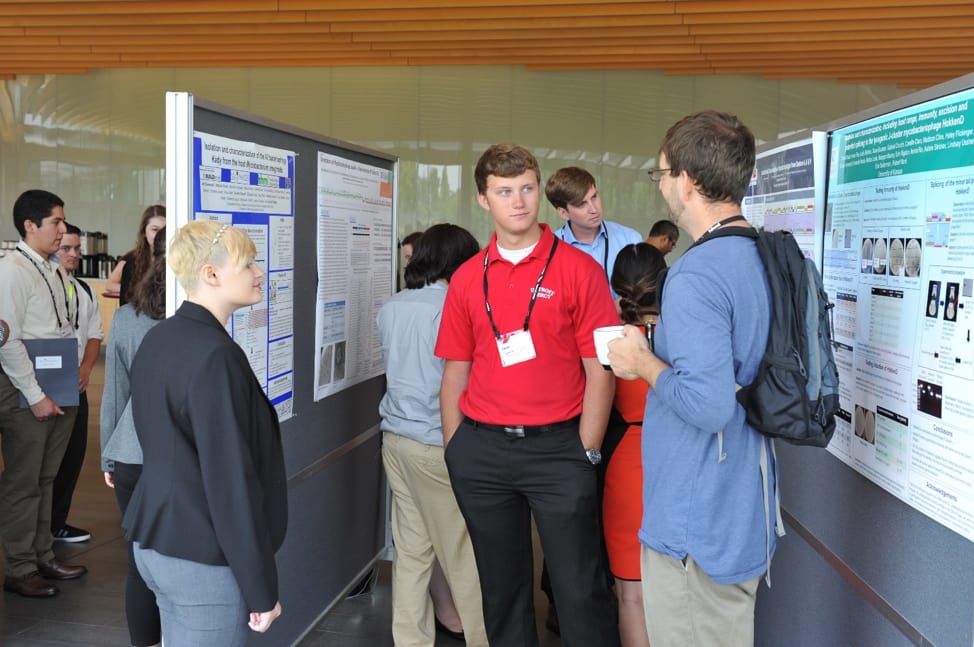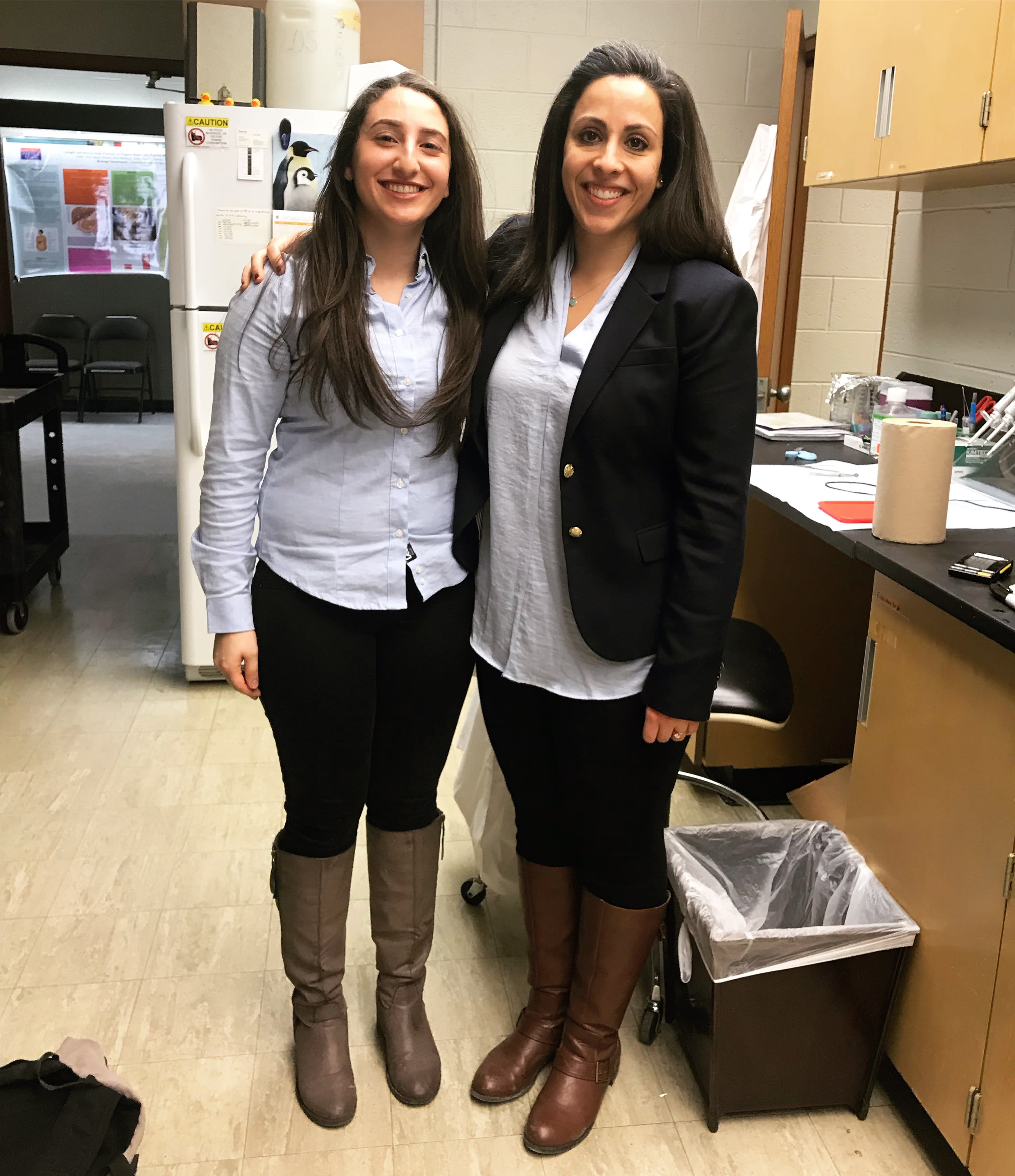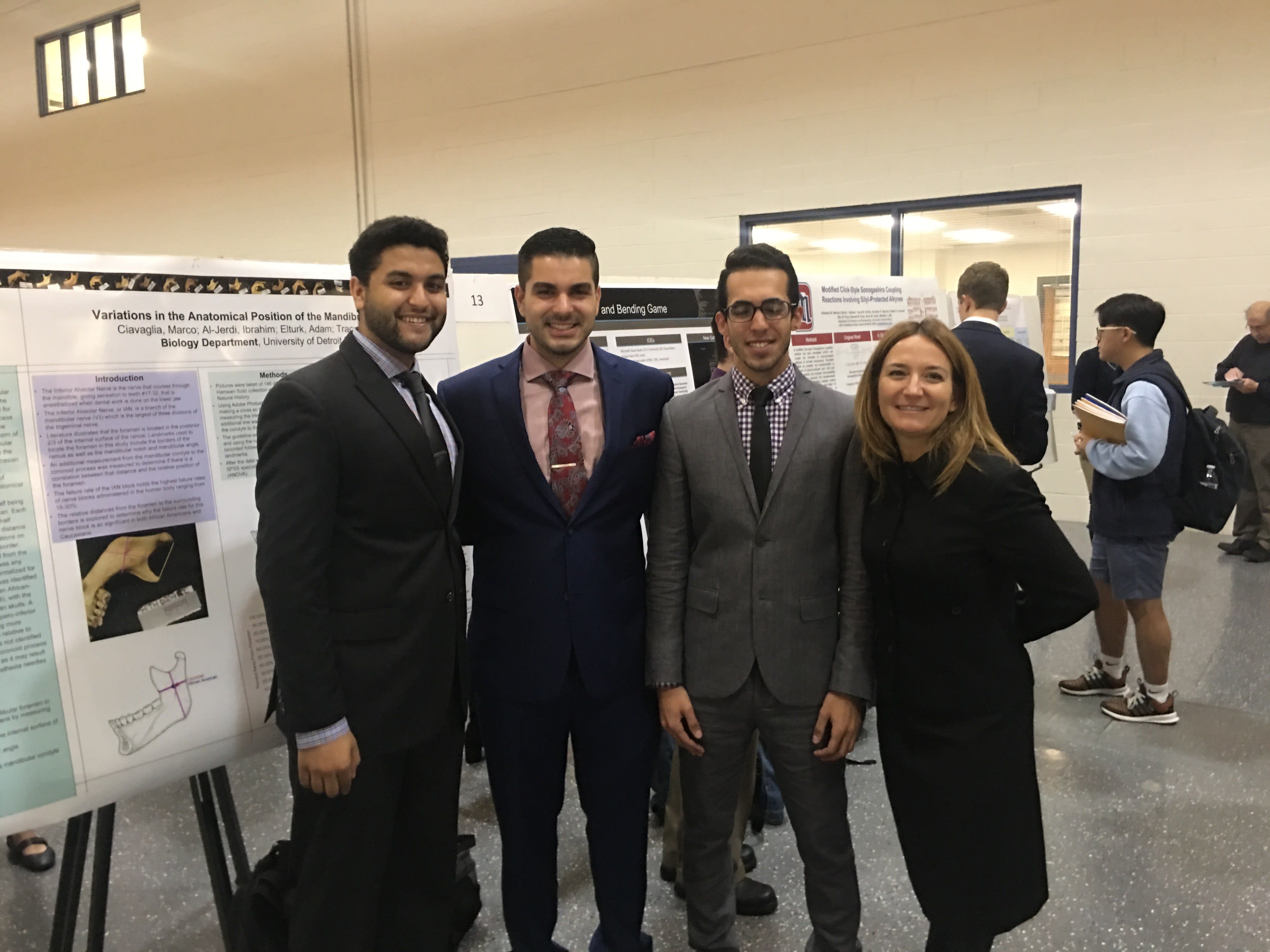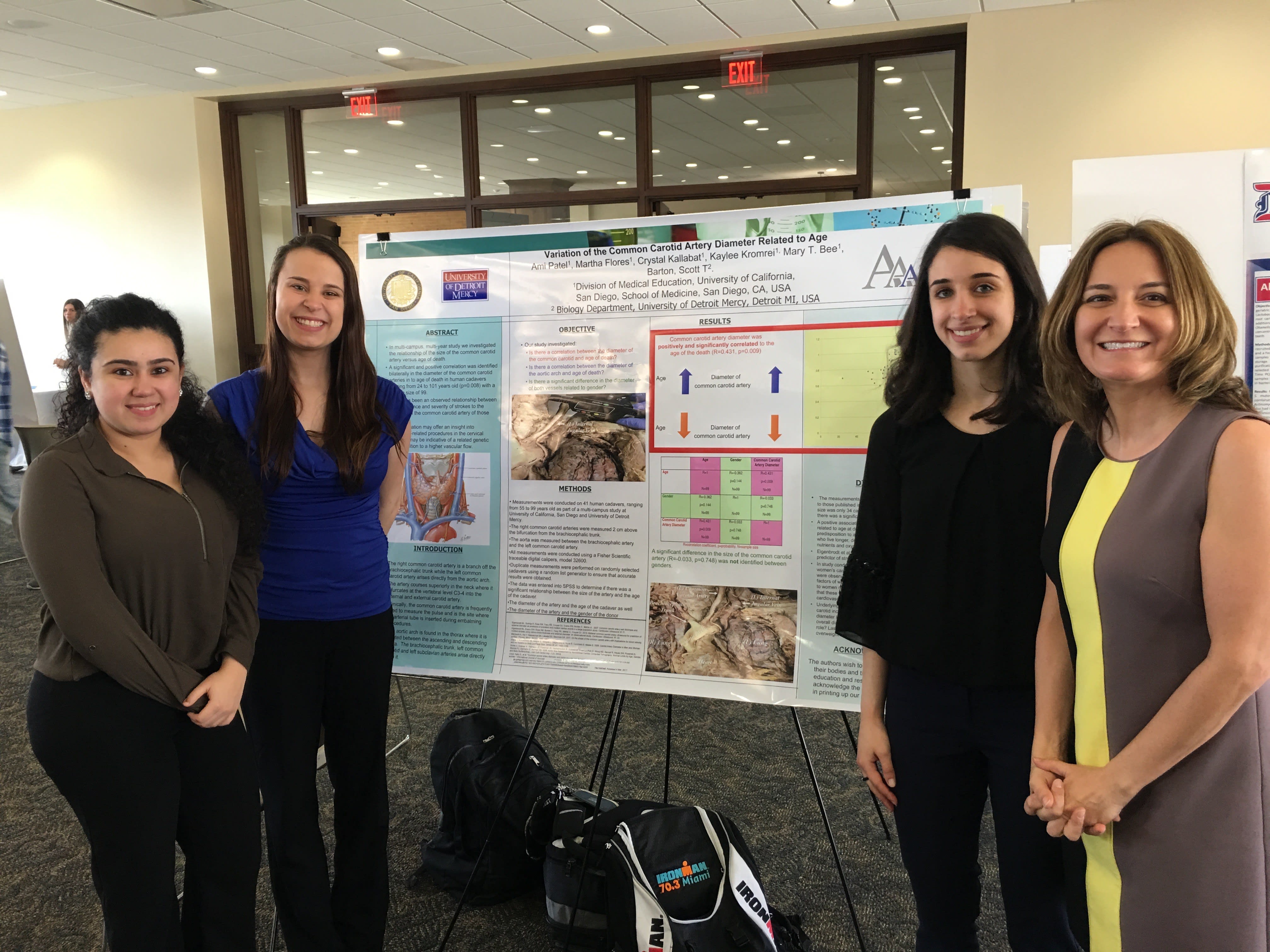This project is now in update mode. Check back regularly to see how things are progressing.
Saamera Awali is studying the effects of atrazine on crayfish
My name is Saamera Awali and I am an undergraduate sophomore at the University of Detroit Mercy. I have been an active member of Dr. Balenger’s research team since the second semester of my freshman year. Some of the roles I have obtained by working in Dr. Belanger’s lab are collecting crayfish from Belle Isle National Park in Detroit, MI, exposing said crayfish to different concentrations of atrazine, examining and analyzing their behavior, anesthetizing them to section their antennules, which include their olfactory neurons, examining their hepatopancreas for DNA damage and Cytochrome P450 activity, and performing many staining protocols. This summer, I plan on further examining crayfish hepatopancreas for DNA damage, further quantify cytochrome p450 activity, isolate RNA and examine gene expression of, as well as try a new neuron/olfaction labeler, IR25A. Donating to research like this will benefit many undergraduate researchers by allowing them to attend conferences to learn new information about new techniques and methods to improve their research.
John's research uses fruit flies to study the Cables 1, a gene that is mutated in ovarian cancer.
My name is John Sherwood, I am a junior biology major at the University of Detroit Mercy. After next year I plan to attend medical school and achieve my dream of becoming a M.D. and practicing medicine. Right now, I do research with Dr. Kagey, mostly working with fruit flies. As a member of the university Honors Program, I will need to write a thesis on my research by the end of next year. My research focuses on Cables 1, a gene that is mutated in 80% of ovarian cancers. The hope is we can discover its function in fruit flies and that will help us treat ovarian cancer patients with this mutation. Having been to a scientific conference before, I know that presenting research at a conference and seeing what others have to present is vital to the research process. It allows others to directly question your methods, and also allows them to suggest potentially helpful ideas that you can try when you return. It also allows you to see what others are doing in your field and how their research might help your own. A scientific conference is such a great atmosphere to learn so much about your field of study and help you become a better researcher, and it is vital that undergraduates get exposed to this kind of environment.

Undergraduate researchers discuss how important travelling to research conferences is
Faith and Travis discuss their research and the purpose of travelling and presenting their research.
Selena Cholak's research investigates the COP9 Signalosome, a multi-protein complex that functions in developmental processes in epithelial cells
After one year as an undergraduate student pursuing a degree in biology, I became interested in relating coursework to research. I decided to enter into research where I was given a position as a laboratory assistant under Dr. Nicole Najor. Under her mentorship, I more fully understood the scientific process as the foundation of research – developing hypotheses, executing experiments, recording results, and analyzing data. The project’s primary focus is on the investigation of the COP9 Signalosome, a multi-protein complex that functions in developmental processes in epithelial cells. Concurrently, students are encouraged to present their research at academic conferences. This is an enriching educational opportunity for me and other young researchers to share our original projects, encourage questions, and welcome discussion. The atmosphere of a scientific conference is uniquely welcoming, invigorating, and strengthening. However, the costs of travel for a conference is a genuine barrier for I and other undergraduate researchers. The costs prevent us from expanding our scientific borders from our laboratories. For this reason, we are raising money to help financially offset some of the cost. Please support our fundraising campaign to help undergraduate students afford travel for research conferences.

Marco Ciavaglia's research examines the variation in size of the mandibular foramen
I am currently a junior biology major with the desire to attend medical school upon completion of my degree at University of Detroit Mercy. My research is finding the variation in the anatomical location of the mandibular foramen between African Americans and Caucasians. The mandibular foramen is simply a hole in the lower jaw where a nerve courses that innervates the bottom teeth. Unfortunately, the nerve block applied in many dental procedures has one of the highest failure rates of any other nerve block. My team and I were able to find a more definitive location which has the potential to change dentistry as we know it. Having the ability to travel to present my research is an amazing opportunity. Not only will the experience help with my presenting skills, it will provide exposure to my research, which has the potential to win more awards and make the University known for ground-breaking research. Dr. Bee already provided me with the direction and, with your help as a donor, you can help me in the next step to spread the word of my research.

Crystal Kallabat's research examines the size of the carotid artery and stroke risk
Hello, my name is Crystal Kallabat. I am an honors Biology major with a Business minor and will be applying to medical school this spring. I am currently part of Dr. Tracy-Bee’s research team. My research consists of finding the diameter of the common carotid artery in relation to cadaver age. In conjunction with the University of California, San Diego’s Medical School, we have measured over 99 cadavers and found a strong, positive correlation between the age of death and the carotid size. This dynamic research is pivotal to the study of the severity of strokes. This amazing research has provided me with direct contact with human cadavers, even though I am still an undergraduate student. The opportunity to present this research would provide me with the ability to enhance my communication and presentation skills. Additionally, I would sharpen my leadership abilities and be able to connect with professionals who are in the same field I aspire to be in. Overall, it would help prepare me for a future that requires strong interpersonal skills and allow the medical world to be informed of this cutting edge research.

$10
Research Supporter
You are a proud supporter of travel for undergraduate student researchers in the Biology Department at University of Detroit Mercy.
$40
Day of Meals
Your donation will help fund a student's daily needs while attending a research conference.
$100
Conference Registration & Fees
Registration, membership and abstract fees may be required in order for an undergraduate student researcher to attend a conference. Your donation will help offset these costs.
$150
Accomodation
Research students may have to stay overnight when attending a research conference. Your gift will help cover the cost of lodging during the conference.
$400
Airline ticket
National conferences are often located at great distances from Detroit. Your donation will make travel to a national research conference more affordable for student researchers.



